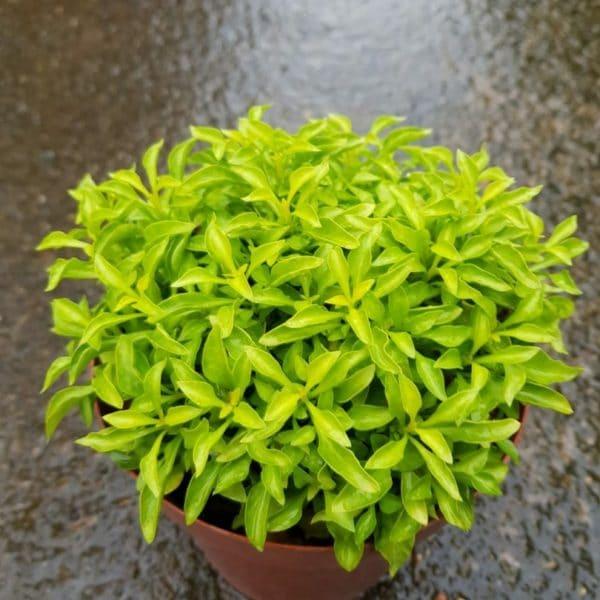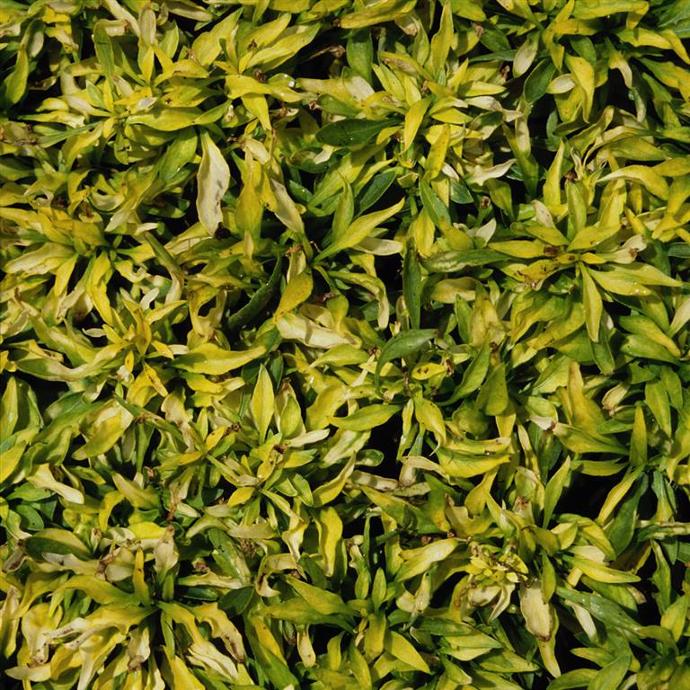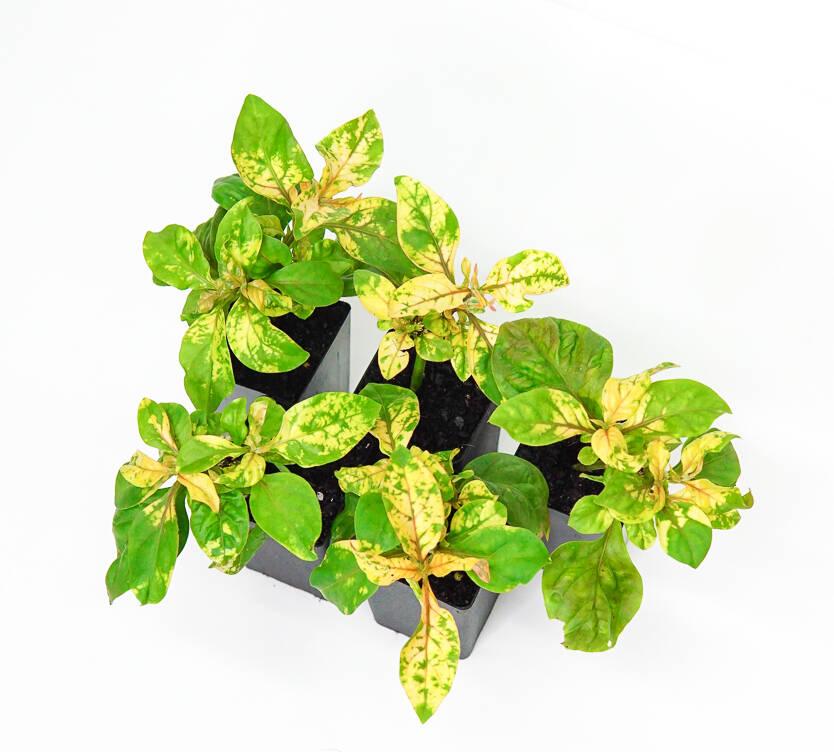Alternanthera Green Plant
Alternanthera is a fast-growing groundcover plant, thrives in partial shade and well-drained soil, requires moderate moisture, and is not edible or medicinal.

Habit
Herbaceous
Height
0.5-1 ft
Growth
Fast
Soil
Well-drained loamy soil
Shade
Partial to full sun
Moisture
Moderate to high
Edible
No
Medicinal
No
Origin
South America
Climatic Condition
Tropical, Humid
Temperature (°)
20-30
Humidity (%)
60-80%
Potting media
Peat+Perlite
Fertilizers
Balalced NPK(10:10:10)
Watering
Regular Watering
Plant Weight
100-150 g
Flowering Time
Summer to Fall
Soil Ph level
6.0-7.0
Water Ph level
6.0-7.5
Soil EC
1-2 dS/m
Yield Per Plant
Ornamental
NPK ratio
10:10:10
life Span
1-2 yrs
Health Benefits
Suggested Grow Media or Potting Mix ?
40% loam, 30% compost, 30% peat moss
Suggested Fertigation/Fertilizers
Fertilize regularly during the growing season with balanced fertilizer.
Common Diseases and Remedies
Leaf Spot, Root Rot, Powdery Mildew, Aphids, Mealybugs..
Yellowing, browning edges, white fungal coating..
Neem oil, compost tea, improve soil drainage.
HEALTH BENEFITS
Alteranthera (often referred to as Alternanthera, a genus of plants in the Amaranthaceae family) has various health benefits, primarily related to its medicinal properties, though much of the research is still emerging. Some commonly believed benefits include:
- Anti-inflammatory properties: Alteranthera plants have compounds that may help reduce inflammation, making them potentially useful for conditions like arthritis or skin irritation.
- Antioxidant effects: Many species of Alteranthera contain antioxidants that can help fight oxidative stress and protect cells from damage, which is important for overall health and may reduce the risk of chronic diseases.
- Digestive health: Some varieties of Alternanthera are traditionally used to help improve digestion and may have mild laxative effects.
- Skin health: Due to their anti-inflammatory and antioxidant properties, Alteranthera leaves are sometimes used in traditional medicine for treating skin conditions like rashes and sores.
- Blood sugar regulation: Certain species may have a role in regulating blood sugar levels, potentially supporting the management of diabetes.
However, it's important to note that more clinical research is needed to fully confirm and understand these benefits. Always consult a healthcare provider before using it for medicinal purposes.

